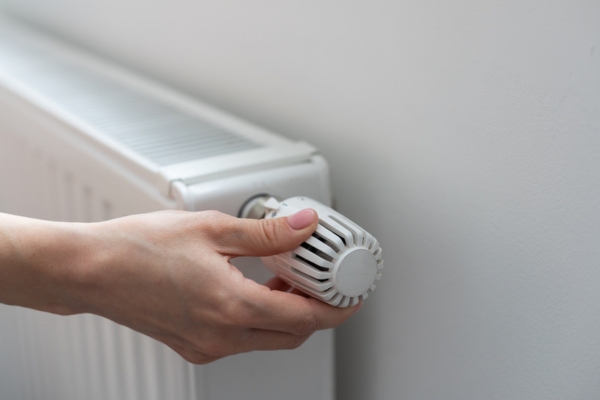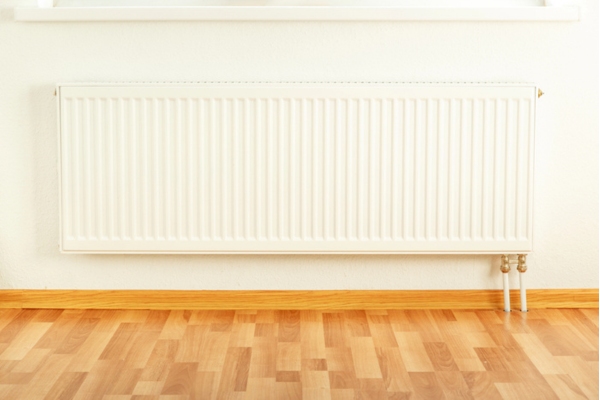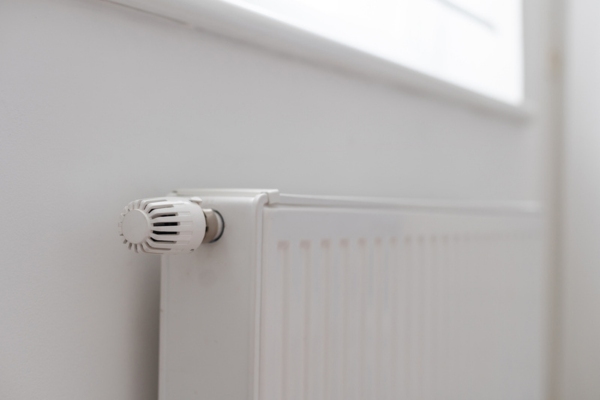
Heating systems are essential for ensuring a cozy home environment. They deliver essential warmth and comfort throughout the colder months. Among these, hydronic heating systems, known for their efficiency and effectiveness, are gaining widespread attention. In this article by PFO Heating & Air Conditioning, you’ll discover heating systems’ vital role in creating inviting indoor spaces. Specifically, we’ll explore hydronic heating systems, focusing on the hot water radiator. You’ll learn about their operating principles, advantages, and how they provide superior warmth and energy efficiency for contemporary homes.
Understanding Hot Water Radiator
Contents
- 1 Understanding Hot Water Radiator
- 2 How Heating Oil Enhances Hydronic Systems
- 3 Pros of Using Heating Oil and Hot Water Radiator in Hydronic Systems
- 4 Maintenance and Care for Heating Oil Hydronic Systems
- 5 Frequently Asked Questions About Oil-Fired Hydronic Heating
- 5.1 What Are the Typical Problems with Hot Water Radiators?
- 5.2 What Are the Advantages of Automatic Heating Oil Delivery Services?
- 5.3 How Efficient Is Heating Oil Compared to Other Fuel Sources?
- 5.4 Is It Possible to Integrate Heating Oil Systems with Smart Home Technology?
- 5.5 What Happens During a Heating Oil Delivery?
- 5.6 How Frequently Should Heating Oil Burners Be Serviced?
- 6 Conclusion
- 7 Reach Out to PFO Heating & Air Conditioning for Dependable Heating Oil Delivery Services

Hot water radiators, integral components of hydronic heating systems, utilize water as the heat transfer medium. These systems heat water in a central boiler and circulate it through pipes and radiators to evenly distribute warmth across different areas.
Radiators have a storied past, beginning in the 19th century, marking a significant advancement in indoor heating technology. Initially, steam radiators paved the way, but hot water variants soon took precedence, favored for their superior efficiency and more manageable heat delivery.
A hot water radiator is an efficient, compact unit typically constructed from cast iron, steel, or aluminum. It features an array of tubes or fins through which hot water circulates, emitting radiant heat. This process warms the air around the radiator. The cooler air at the bottom is pulled in, creating a convection current that allows warm air to rise and circulate, ensuring even and comfortable heating throughout the room.
Discover Excellence. Trust PFO Heating & Air Conditioning for outstanding and economical HVAC solutions. Contact us to book your free consultation today!
The Mechanics of Hot Water Radiator
Hot water radiators function based on the dual principles of radiant and convection heat transfer. Heated water from a central boiler is distributed through pipes to the radiators, releasing heat into the room. The water eventually cools down and returns to the boiler to be reheated. This cycle makes hot water radiators efficient for heating homes and buildings.
Exploring Heat Transfer Dynamics

The warm water transfers heat to the radiator’s metal surfaces inside the radiator, emitting heat into the surrounding air. This heating action causes the air to warm up and rise, generating a convection current that facilitates the circulation of warmed air throughout the space, enhancing the heating efficiency.
Attain Comfort. Opt for PFO Heating & Air Conditioning for trustworthy and cost-effective HVAC services. Contact us to schedule your no-cost assessment today!
How Heating Oil Enhances Hydronic Systems
Heating oil frequently serves as the fuel for heating the water in boilers. This heated water circulates through the radiators, dispersing heat into the surrounding space. The heating oil’s combustion efficiency significantly influences the entire hydronic system’s performance and energy efficiency.
The Impact of Heating Oil on Hydronic Heating Systems

Heating oil, also called fuel oil, is a liquid petroleum product that hydronic heating systems use extensively. Crude oil produces heating oil, favored for its versatility and efficiency, providing stable and reliable heat. Tanks store the oil, which then travels to the boiler for combustion.
The boiler ignites the heating oil within the hydronic system, generating high-temperature flames. This heat transfers to a heat exchanger, warming the water circulating through the system. The heated water travels through pipes to the radiators, dispersing heat into the environment, thereby warming the surrounding space.
As the water in the radiators emits heat, it cools and increases in density. This cooler, denser water then returns to the boiler to be reheated. A pump within the system facilitates the movement of this heated water from the boiler to the radiators and back, creating a continuous circulation loop. This mechanism ensures a uniform distribution of heat throughout the space.
Fundamentally, the burning of heating oil initiates a sequence of events that culminate in the continuous flow of heated water through the radiators in a hydronic heating system.
Enhance Efficiency. Rely on PFO Heating & Air Conditioning for premier and cost-effective HVAC systems. Book your no-cost consultation today by reaching out to us!
Pros of Using Heating Oil and Hot Water Radiator in Hydronic Systems

Discover the benefits of employing an oil-fired radiant heating system:
- Energy Efficiency: Radiators powered by heating oil demonstrate high energy efficiency by effectively transferring the heat generated from fuel combustion directly to the water. This process ensures that a substantial amount of the generated energy is utilized directly for heating, reducing energy loss.
- Cost-Effectiveness: Heating oil radiators are often more economical than alternative heating methods. This is particularly true in areas where heating oil costs are competitive. The system’s efficient heat transfer capabilities and the ability to manage heating zones individually can lead to significant cost reductions.
- Steady and Comfortable Heat Dissemination: Hydronic systems with heating oil radiators ensure consistent and even heat distribution. The radiant heat from the radiators warms objects and surfaces within the room, fostering a cozy and pleasant living environment.
- Reduced Environmental Impact: Recent innovations in heating oil technology have introduced cleaner-burning options that emit fewer pollutants. Although assessing the environmental effects is essential, contemporary heating oil systems can help significantly lessen their ecological footprint.
Maintenance and Care for Heating Oil Hydronic Systems
Routine Maintenance for Hot Water Radiators
- Regular Inspection: Regularly inspect radiators for any signs of leaks, corrosion, or fin damage. Promptly resolving these issues is crucial for maintaining optimal heat transfer.
- Bleeding Air: To ensure the best water circulation and to avoid cold spots, periodically bleed air from the radiators.
- Cleaning: Maintain the cleanliness of radiators by removing dust and debris, which helps promote efficient heat emission.
Troubleshooting Common Problems in Heating Oil Systems

- No Heat: Start by checking your thermostat settings. Activate the boiler and confirm there’s enough heating oil in the tank.
- Insufficient Heat: Set the thermostat correctly. Bleed the radiators to remove any trapped air. Consider scheduling boiler maintenance if needed.
- Leaks: Inspect the system regularly for visible leaks and fix them promptly to avoid further issues.
- Noisy Operation: Unusual noises likely indicate trapped air or other issues. Bleed the radiators and consult a professional if necessary.
Elevate Your Comfort. Collaborate with PFO Heating & Air Conditioning for superior, budget-friendly HVAC choices. Contact us to book your complimentary consultation today!
Frequently Asked Questions About Oil-Fired Hydronic Heating

What Are the Typical Problems with Hot Water Radiators?
Typical challenges with hot water radiators range from uneven heat distribution to trapped air within the system, leading to noisy operation. Addressing uneven heating usually involves bleeding the radiators to release any trapped air. Consistent maintenance and thorough inspections are crucial for preventing such issues and maintaining an efficient, noise-free system. Should issues continue, consulting a professional technician for deeper analysis and repairs is advisable.
What Are the Advantages of Automatic Heating Oil Delivery Services?
Automatic heating oil delivery services guarantee that you always have a sufficient fuel supply, ensuring continuous warmth and offering peace of mind, particularly throughout the colder, high-demand seasons. This service also facilitates easier budget management and typically includes regular maintenance checks to verify that your heating unit is working at maximum efficiency.
How Efficient Is Heating Oil Compared to Other Fuel Sources?
Heating oil is distinguished by its high energy content, delivering more heat per gallon than many other fuel types. Contemporary improvements in burner technology boost its efficiency, reducing fuel consumption and decreasing emissions, making heating oil an increasingly efficient choice for home heating.
Secure Dependability. Choose PFO Heating & Air Conditioning for reliable and affordable HVAC services. Contact our team to book your free consultation today!
Is It Possible to Integrate Heating Oil Systems with Smart Home Technology?
Absolutely, heating oil systems can be seamlessly combined with smart thermostats and home automation systems. This integration enables remote heating monitoring and control, optimizing fuel consumption and ensuring efficient maintenance of comfortable indoor temperatures.
What Happens During a Heating Oil Delivery?
During a heating oil delivery, a skilled technician will refill your tank to the specified level, inspect the tank and its connections for any issues, and give you a detailed receipt that includes the quantity of oil delivered and the prevailing price per gallon.
How Frequently Should Heating Oil Burners Be Serviced?
It is recommended that heating oil burners be serviced once a year to maintain their efficiency and safety. Regular servicing involves cleaning the burner, checking the fuel nozzle, and conducting a thorough system inspection for any potential issues.
Conclusion
A heating oil radiator within a hydronic system provides efficient warmth, harmoniously blending technology and science. Their ability to distribute heat evenly, energy efficiency, and cost-effectiveness make them an attractive option for maintaining comfortable indoor spaces. Regular maintenance of these radiators ensures effective heating and supports a cozy and environmentally sustainable living environment.
Reach Out to PFO Heating & Air Conditioning for Dependable Heating Oil Delivery Services
PFO Heating & Air Conditioning commits to keeping homes and businesses in the Greater Princeton, NJ, area cozy and warm with our trustworthy heating oil delivery services. We ensure the delivery of premium heating oil promptly and efficiently, seamlessly providing you with the warmth you need. Our pledge to exceptional service includes competitive pricing and clear, direct services, always prioritizing your comfort.
Beyond heating oil delivery, PFO Heating & Air Conditioning offers a complete spectrum of HVAC services, positioning us as your comprehensive provider of all home comfort solutions.
Opting for PFO Heating & Air Conditioning means choosing a reliable partner known for consistent, committed service and a focus on customer satisfaction, which has made us a respected name in the community.
Click here to contact us now or call us at (800) 253-9001 to find out more! Click the link to view our service area.

Related Articles:



